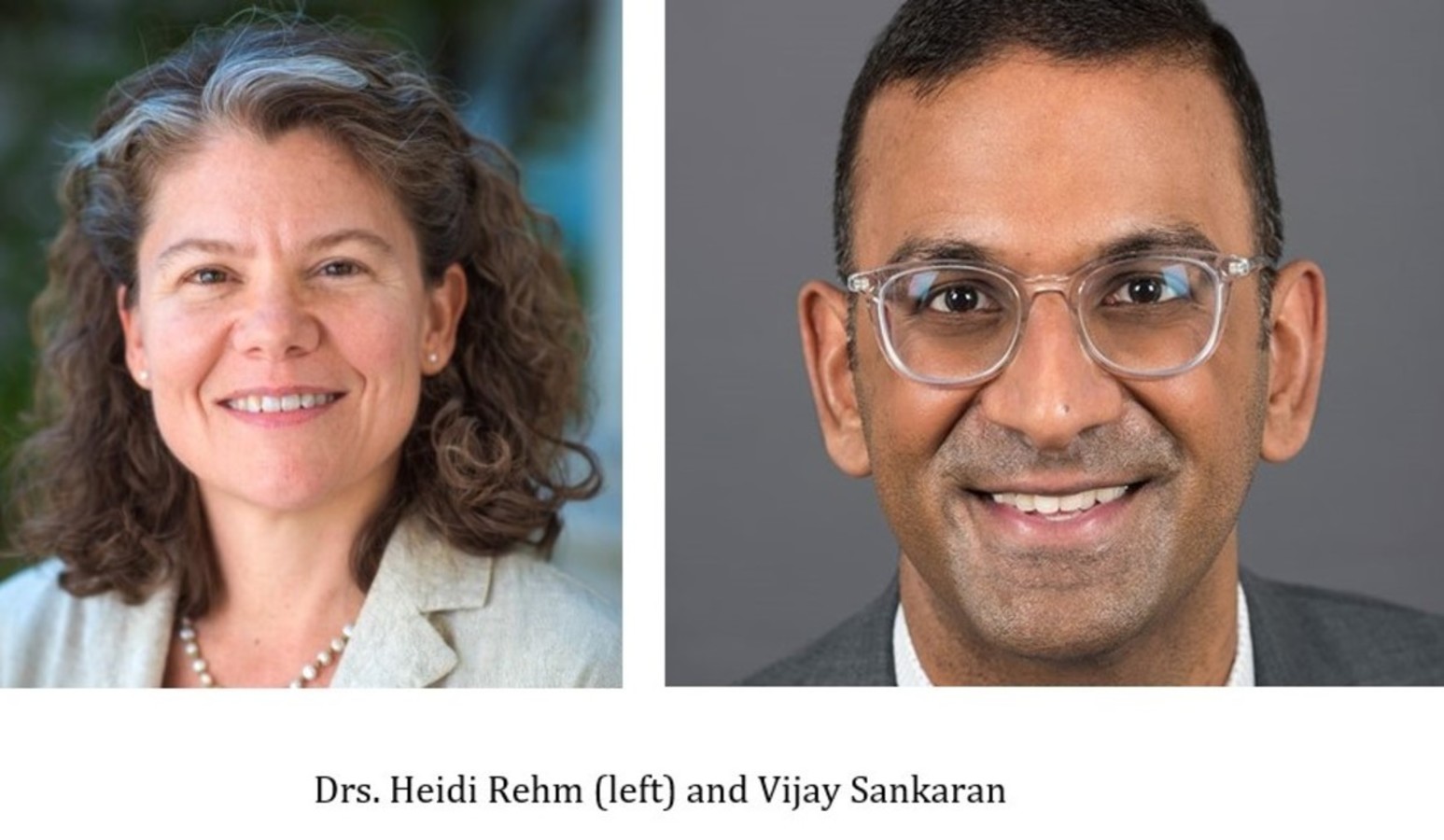
[Editor’s note: The 7th annual Mutational Scanning Symposium will be held on May 22nd through 24th at Broad Institute in Cambridge, Mass. Dr. Rehm is an Institute Member of the Broad Institute and Co-director of its Program in Medical and Population Genetics, as well as Professor of Pathology in the Center for Genomic Medicine and the Chief Genomics Officer in the Department of Medicine at Massachusetts General Hospital. Dr. Sankaran, M.D., Ph.D., is an Associate Professor of Pediatrics, Boston Children's Hospital & Harvard Medical School and an Attending Physician, Dana-Farber/Boston Children's Cancer and Blood Disorders Center.]
What is the topic or title of your keynote address and what do you hope the audience will learn from it?
Dr. Rehm: My topic will be advancing genomic medicine through global collaboration. I want participants to think about the task at hand. There are more than a billion variants in the human genome. It is an enormous challenge to determine the clinical significance of those variants. I will examine ways that we as a community can collectively move toward an improved understanding of human variation and the many different types of evidence that go into understanding clinical significance. We also need to expand scalable, functional assays to help us more efficiently understand the impact of variation, as well as take into account phenotypic observations in human patients and other genetic evidence.
Dr. Sankaran: I plan to explore the big issue of how we are innovating with multiplex assays of variant effects (MAVES) and the genetic variations that affect blood cell production in patients. Our challenge is how can we take amazing tools that so many investigators around the world have developed and apply those tools to perform base editing to primary blood and immune cells, as well as their precursors. Our goal is to answer the question: What are the impacts of genetic variants on red blood cells, platelets, white blood cells, blood stem cells, and the many progenitors involved in producing these cells?
What are you most looking forward to at the symposium?
Dr. Rehm: Seeing the most recent advances in this critical area of scalable, functional assays and the interpretation of human variation. I want to understand what advances have been made. This will be opportunity to meet and hear from some of the leaders in this field sharing their work and hearing their observations for the near term.
Dr. Sankaran: I am excited to hear about all the advances in this area of genetics – as noted above – where MAVES are applicable to blood and immune systems. I also look forward to seeing new developments, especially from young and emerging investigators.
What advice would you give a young scientist attending the conference who intends to pursue a career in research of genetic variants?
Dr. Rehm: Meet and connect with as many people as possible, because this work requires extensive collaboration and community effort. The more you can work effectively with others, the more you will achieve.
Dr. Sankaran: I would say be diligent and work hard to increase your knowledge, and to apply your research on a larger scale outside the lab. Fifteen years ago, I was a graduate student just down the hall from where I now have my office. My fellow students and I were failing at a lot of things, but we persevered and performed some of the early variant to function work that identified the BCL11A gene as a key regulator of fetal hemoglobin. That work set the foundation for first FDA-approved CRISPR-Cas9 treatment for sickle cell disease and thalassemia.


